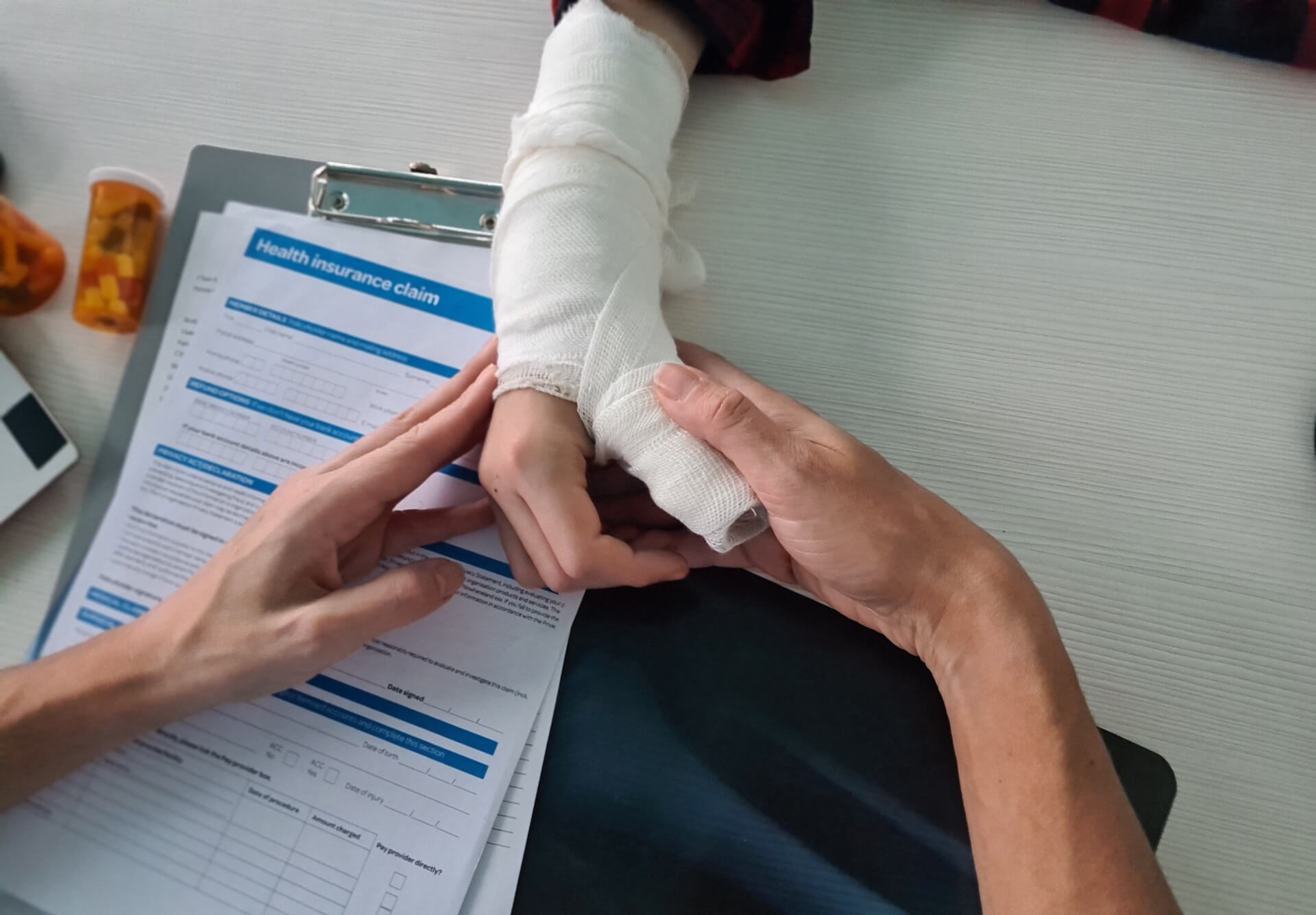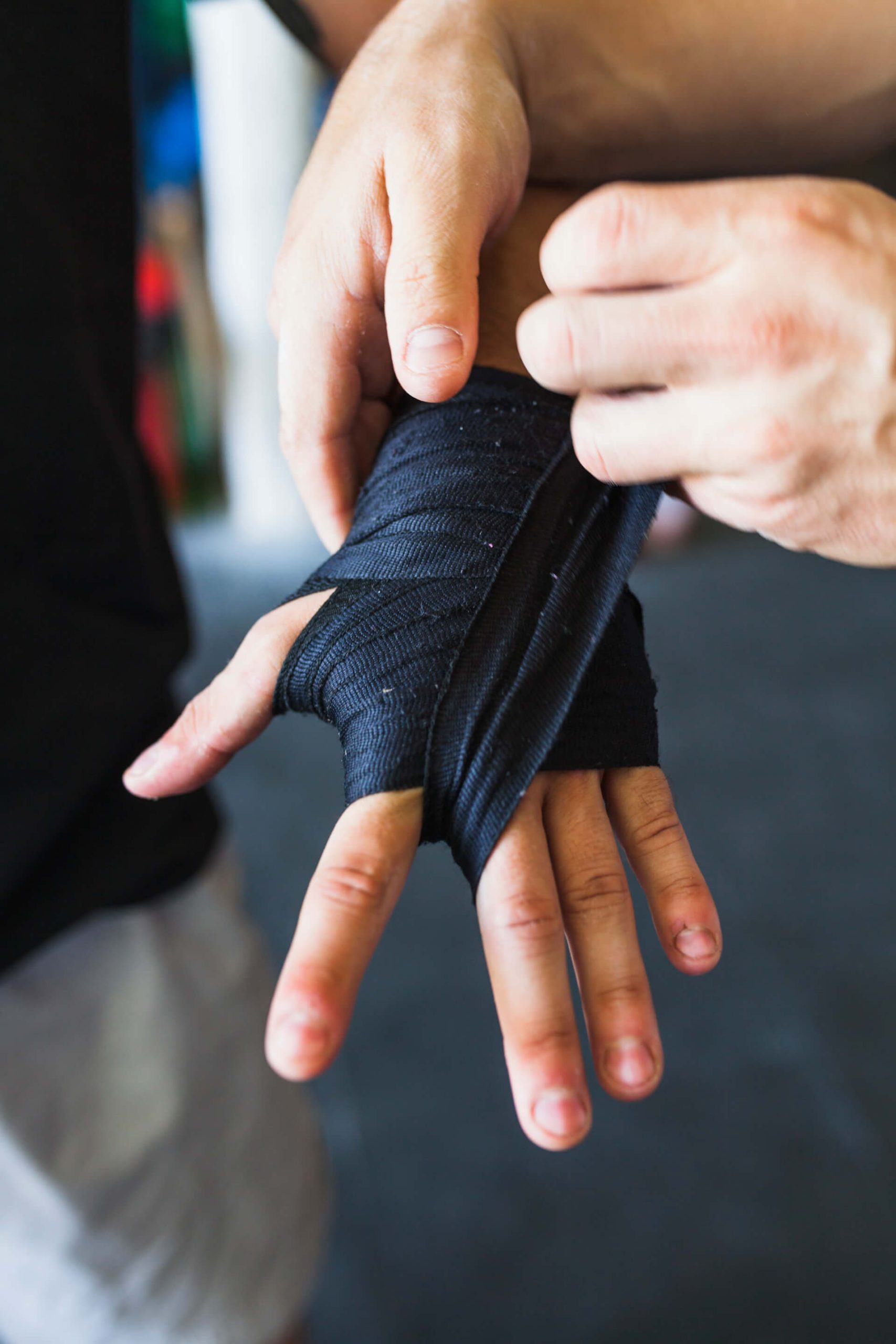Missouri Personal Injury
Our approach to lawsuits is straightforward and effective. While some personal injury law firms are known to quickly settle as many cases as possible, we approach every case as if it will ultimately go to trial. Our trial lawyers work to fully understand and demonstrate the extent of our clients’ injuries and damages. We believe that whether your injuries are minor or catastrophic, you deserve our strongest efforts to get you the maximum compensation.
Our law firm has deep ties to the legal community and has been providing representation to clients across Missouri for decades. With our combined 130+ years of legal experience, we know what it takes to prosecute your personal injury case skillfully and effectively.
PHILOSOPHY
Our philosophy on representing clients boils down to three basic principles.
- Easy for You. We know that recovering from an injury can be stressful and difficult. In addition to pain and suffering, you have to deal with medical appointments, lost time from work, and possibly ongoing calls from debt collectors. The last thing you need is to worry about is finding a lawyer and filing a lawsuit. That’s why we do our best to make the process simple and stress free for you. All you have to do is call or send us a message to set up your free consultation and let us take it from there.
- Build Trust. We believe that the only way to effectively represent our clients is to earn their trust. The most rewarding part of our job is meeting with our clients, getting to know them personally, and fully understanding their challenges. While some lawyers are known for being inaccessible, we take pride in being responsive to our clients’ needs, answering their questions, and fully explaining the legal process.
- Maximize Recoveries. Not only do we enjoy getting to know our clients, but we believe it is critical to effective representation. We gain a full picture of our clients’ injuries and the challenges they face. We then consult with their own doctors along with a network of extremely qualified medical experts to fully understand and explain the impact of the injuries sustained. This allows us to ensure that no stone is unturned in demonstrating the full extent of your damages and puts us in the strongest position to negotiate a settlement or take your case to trial.

CONTINGENT FEES
We offer our clients contingent fee arrangements where we only get paid if we win for you.
TYPES OF CASES WE HANDLE
- Auto Accidents
- ATV Accidents
- Battery/Assault
- Boating Accidents
- Burns
- Construction Site Accidents
- Dangerous Conditions of Property
- Dangerous Products
- Dog Bites
- Electrocutions
- Government Liability
- Gunshot Wounds
- Motorcycle Accidents
- Negligent Supervision and Security
- Nursing Home Abuse and Neglect
- Police Misconduct/Civil Rights
- Slip/Trip and Fall Accidents
- Trucking and Commercial Vehicles
- Underinsured and Underinsured Motorist Coverage
- Workplace Accidents
- Wrongful Death
TYPES OF DAMAGES
Our object in a personal injury case is to help our clients seek justice through the only means legally available, compensation in the form of money damages. Our aim is to identify all of the ways that the accident has impacted your life and demand the damages that you deserve. The following is a sampling of the types of damages that we will potentially strive to recover on your behalf at trial:
- Medical Expenses: A significant part of any personal injury claim, medical expenses encompass costs incurred for hospital stays, surgeries, doctor visits, medication, physical therapy, and any future medical care you may need as a result of your injury.
- Lost Wages: When an injury forces you to take time off work, the financial burden can be overwhelming. We fight to recover lost wages to help maintain financial stability during your recovery period.


- Lost Earning Potential: Severe injuries may impair your ability to earn at the same capacity as before. We meticulously calculate and seek compensation for the lost earning potential over the course of your career.
- Lost Household Contributions: Injuries can hinder your ability to contribute to household chores and maintenance. We strive to quantify and recover the value of these lost contributions to ease your transition during recovery.
- Pain and Suffering: The physical pain and emotional distress following an injury can be debilitating. Our attorneys are skilled at articulating the non-economic damages associated with your pain and suffering.
- Loss of Enjoyment of Life: A severe injury can rob you of the joy and satisfaction derived from hobbies, recreational activities, and other life pleasures. We seek compensation for the loss of enjoyment in life, advocating for a settlement or judgement that mirrors the extent of the deprivation you’ve endured.
- Punitive Damages: This form of damages is available to punish the wrongdoer in instances of reckless behavior, or behavior that was deliberately indifferent to your safety. Punitive damages are meant to punish the wrongdoer and deter others from engaging in similar behaviors.


TYPES OF INJURIES
We understand that the aftermath of a personal injury isn’t just about dealing with the legal complexities, but also understanding the impact that our client’s injuries have on their lives. Our personal injury lawyers are adept at handling cases with varying types of injuries.
We represent clients who have suffered from a wide range of injuries:
- Traumatic Brain Injuries (TBI): The implications of a traumatic brain injury can be life-altering, affecting not only the injured but their families too. Our legal team is well-versed in handling the intricacies that TBI cases entail, striving to secure the compensation necessary for ongoing medical care and rehabilitation.
- Burns: We understand the severe and often devastating impact that burn injuries can have on individuals and their families. Our team of personal injury attorneys is devoted to providing vigorous representation for victims of burn injuries, working to secure rightful compensation to cover medical bills, rehabilitation costs, lost wages, pain and suffering, and other associated damages.
- Broken Bones and Fractures: The pain and immobilization caused by broken bones can severely impact one’s quality of life. We are committed to ensuring that you are compensated for your medical bills, loss of income, and the pain and suffering endured.
- Scarring and Disfigurement: Scars can be a painful reminder of the incident, impacting one’s self-esteem and mental well-being. Our attorneys are dedicated to obtaining settlements that account for the emotional trauma and physical repercussions associated with scarring.


- Spinal Injuries/Paralysis: Spinal injuries can lead to a lifetime of medical challenges. We aim to secure recoveries that give you future financial security and cover your medical expenses, ongoing care needs, and the physical and emotional distress caused by such severe injuries.
- Loss of Limb/Amputations: The loss of a limb is a life-changing event. Our empathetic and experienced attorneys are here to help you secure the financial support necessary to cover prosthetic, rehabilitation, and adaptation costs.
- Herniated or Bulging Discs: We understand the chronic pain and mobility issues associated with disc injuries. Our firm is dedicated to ensuring that you receive compensation to cover your medical treatments and alleviate the financial burden.
- Internal Injuries: Internal injuries can be silent but deadly, requiring immediate medical attention and long-term care. Our lawyers work tirelessly to ensure that all medical costs, present and future, are accounted for in your settlement.
- Whiplash and Soft Tissue Injuries: Soft tissue injuries or whiplash, though often underestimated, can lead to long-term discomfort and rehabilitation needs. We advocate for a thorough evaluation of the impact of such injuries on your life to ensure fair compensation.
- Neck and Back Pain: Neck and back injuries often result from accidents, work-related strains, or other incidents that are no fault of your own. The pain and discomfort can be debilitating, making simple tasks like driving, working, or even sleeping difficult and distressing. Beyond the physical agony, these injuries can lead to significant emotional and financial strain. Many of our clients experience anxiety, depression, and a sense of helplessness due to their reduced mobility and mounting medical bills.
FREQUENTLY ASKED QUESTIONS ABOUT PERSONAL INJURY LAWSUITS IN MISSOURI
How are personal injury settlements paid out?
Personal injury settlements are usually paid out in one of two ways: as a lump sum or through a structured settlement. If a Plaintiff elects to receive a lump sum then a check is written in the total amount of the settlement, usually made out to the Plaintiff and their attorney’s law firm. The attorney will deposit the check in his/her firm’s trust account after which attorney’s fees/expenses are deducted and a check written to the Plaintiff for the remainder. Another option for the Plaintiff is to receive a structured settlement. Under this option, an annuity is purchased, usually from a life insurance company, where the Plaintiff receives regular payments over time, or regular payments interspersed with lump sums at various intervals throughout the life of the annuity. There are generally numerous options to choose from in terms of payment schedules.Do I need a personal injury lawyer?
Deciding whether you need a personal injury lawyer depends on various aspects of your situation. However, in general it is always advisable to have an attorney who can guide you through the legal process. Here are some key considerations to help you make this decision:- Severity of Your Injuries: If you've suffered serious injuries that require medical treatment, hospitalization, or have led to long-term or permanent disability, a lawyer can help ensure you receive adequate compensation.
- Complexity of the Case: If your case involves complex legal issues, disputed liability, or multiple parties, a lawyer's expertise will be beneficial in navigating these complexities.
- Insurance Company Involvement: If you're facing an insurance company that is disputing your claim, offering an unfair settlement, or engaging in bad faith tactics, a lawyer can negotiate on your behalf and protect your interests.
- Medical Expenses and Lost Wages: If the incident has resulted in significant medical bills or lost income, a lawyer can help you recover these costs.
- Legal Knowledge and Experience: Personal injury law and the legal system can be complicated. An experienced lawyer can handle the legal aspects of your case, allowing you to focus on recovery.
- Statute of Limitations: There are deadlines for filing personal injury lawsuits, known as statutes of limitations. A lawyer can help ensure that your lawsuit is filed within these time limits.
- Peace of Mind: Even if your case seems straightforward, having a lawyer can provide peace of mind. They can offer guidance, answer your questions, and ensure that your rights are protected.
- Evaluating Settlement Offers: If you're unsure about the fairness of a settlement offer, a lawyer can help evaluate it and negotiate for a better one if necessary.
- No Recovery, No Fee: We work personal injury cases on a contingency fee basis, meaning we only get paid if you win your case.
- Damages: Calculating non-economic damages like pain and suffering or emotional distress can be challenging. A lawyer can help in accurately valuing these aspects.
When to hire a personal injury lawyer?
In general it’s best to consult with a personal injury lawyer as soon as possible following an injury. Personal injury laws are subject to statute of limitations deadlines so it’s best not to wait. Also, it generally strengthens your case if your attorney can start investigating as soon as possible. Memories tend to fade over time and physical evidence can be lost or destroyed. The sooner an attorney can begin, the sooner this information can be preserved.How long does a personal injury lawsuit take?
The duration of a personal injury lawsuit can vary greatly depending on several factors, making it difficult to predict the exact timeline for any given case. However, several key factors typically influence the length of these legal proceedings:- Complexity of the Case: Simpler cases with clear liability and few disputed facts can be resolved relatively quickly, often in a matter of months. More complex cases, such as those involving severe injuries, disputed liability, or multiple parties, can take years to resolve.
- Severity of Injuries: The extent and nature of the injuries can impact the timeline. Lawyers often advise waiting until the plaintiff reaches "maximum medical improvement" (MMI) before settling, so the full extent and cost of the injuries are known.
- Willingness to Settle: If both parties are open to negotiation and can reach a settlement agreement, the process can be much shorter. Settlements can be reached at any stage, sometimes even before a lawsuit is formally filed.
- Legal Process and Procedures: The legal steps involved, such as investigation, filing motions, discovery, and potential trial preparation, all take time. Court schedules and backlogs can also extend the timeline.
- Appeals: If either party is dissatisfied with the trial outcome and decides to appeal, this can significantly lengthen the duration of the case.
- Jurisdiction and Venue: Different courts and jurisdictions have varying processes, workloads, and procedural requirements that can affect how long the case takes.
How to find a Personal Injury Lawyer?
Finding a personal injury lawyer can involve several steps to ensure you choose a qualified attorney well-suited to your specific needs. Here's a guide to help you find a personal injury lawyer:- Gather Referrals: Start by asking friends, family, or co-workers if they know any reputable personal injury lawyers. Personal recommendations can be very valuable.
- Local Bar Association: Check with your local or state bar association, which typically maintains a directory of attorneys.
- Online Directories and Legal Websites: Utilize online resources like legal directories, which list attorneys by location and specialty. Websites like Avvo, Martindale-Hubbell, and FindLaw can be useful.
- Lawyer Review Sites: Look at online reviews and ratings of lawyers. However, take these with a grain of caution, as online reviews can sometimes be misleading.
- Experience: Look for a lawyer who practices in personal injury law and has experience with cases similar to yours.
- Initial Consultation: Check to see if the personal injury attorney offers free consultations. Use this opportunity to discuss your case, understand the lawyer's approach, and gauge whether you feel comfortable working with them.
- Discuss Fees and Costs: Understand how the lawyer charges for their services. If you don’t want to incur potentially costly hourly fees, make sure the personal injury lawyers work on a contingency fee basis, meaning they only get paid if you win your case.
- Check Credentials and Track Record: Research their professional background, credentials, and track record. This includes looking into their educational background, years of practice, and history of case outcomes.
- Assess Communication and Comfort Level: Ensure that the lawyer communicates clearly and is someone you feel comfortable working with. The lawyer-client relationship is crucial in personal injury cases.
What does a Personal Injury Lawyer do?
A personal injury lawyer represents individuals who have been injured, physically or psychologically, as a result of the negligence or wrongdoing of another person, company, government agency, or other entity. Their primary role is to help their clients obtain compensation for their injuries and losses. Key activities of a personal injury lawyer include:- Case Evaluation: They assess the details of the case to determine its merits and the appropriate legal strategy.
- Legal Advice: They provide guidance on the legal rights, options, and strategies available to their clients.
- Gathering Evidence: This includes collecting medical records, interviewing witnesses, and working with experts to establish the extent of the injury and how it occurred.
- Negotiating with Insurance Companies: They negotiate settlements with insurance companies to ensure fair compensation for their clients without the need for a trial.
- Representation in Court: If a settlement cannot be reached, they represent their client in court, presenting the case to a judge or jury.
- Legal Paperwork and Documentation: They handle all legal paperwork, filings, and documentation necessary for the case.
- Client Communication: Keeping the client informed about the progress of the case and advising them through every step of the legal process.
- Damage Evaluation: They help in quantifying the damages in terms of medical expenses, lost wages, and non-economic damages like pain and suffering.
